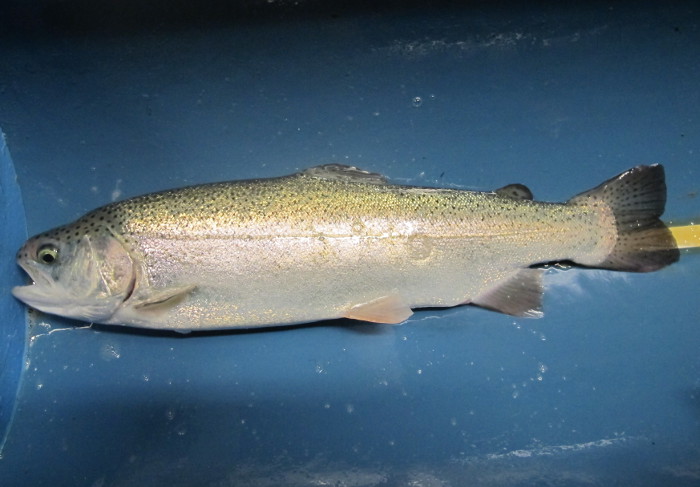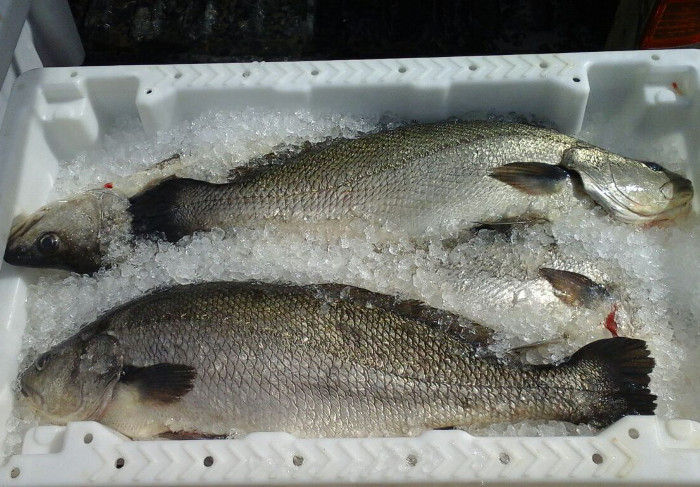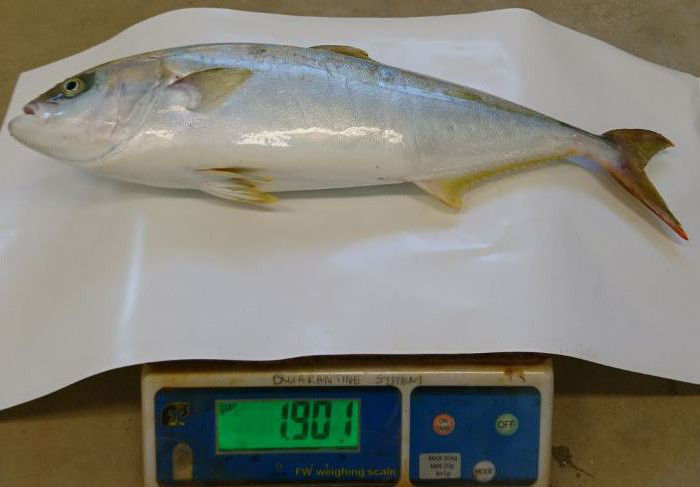AMT exists to support the production of fish as sustainably as possible in environmentally controlled aquaculture systems. By ‘sustainable’, we mean environmentally, financially and socially.
A nutritious and highly digestible aquaculture feed, complete with custom feed rationing tables and the technical support you need to get maximum productivity out of your farm.
AMT offers custom feed formulation and application technology in order to make any intensive aquaculture system operate economically viably, for any aquatic species. Our feed is designed to perform best in intensive production systems, especially in systems where water is re-used, or re-circulated. We expect our feed to improve water quality in the live-holding systems within the first week, but it will take at least 2-3 months before the positive impact of the feed will be reflected in improved animal productivity (growth rates and food conversion efficiencies).
AMT Intensive technology mitigates the ‘density effect’, so you can stock more fish in a live-holding system without sacrificing growth and lowering productivity – as long as oxygen levels in the system are not too low. The feed may be slightly more expensive than conventional feeds, but we guarantee a better feed conversion than other aquatic feeds and a cost benefit that will reduce your mortality rates, improve animal vitality, reduce diseases and contribute to your bottom line.



Two Dam Sustainable (TDS) Trout Farm is a boutique Rainbow Trout farming operation situated in the mountains behind the picturesque town of Montagu in Western Cape, in the semi-desert environment of the Klein Karoo. The off grid farm uses a relatively simple recirculating aquaculture system (RAS) with a water exchange of less than 2-3% per day and prides itself on being environmentally sustainable, generating all the energy requirements on site, mostly through solar and hydro. TDS has been using ‘AMT Intensive’ feeds and its feeding system since October 2018, with a noticeable improvement in water quality, fish vitality and a significant reduction in fish mortalities since then. Economic food conversion ratios or eFCR’s (eFCR’s are a measure of the efficiency at which feed weight is converted into total fish weight and includes losses through mortalities, grade-outs etc.) have improved by over 25% to below 1:1 using AMT feeds. So, it takes less than 1kg of AMT feed to produce 1kg of rainbow trout. All of this improves the sustainability of the farm and reduces production costs. Go to www.twodam.co.za for more details.
‘AMT Intensive’ feed is available to all trout farmers in South Africa.
Pure Ocean East London’s batches of Cape Yellowtail Kingfish (Seriola lalandi), a notoriously sensitive marine fish species grew, on average, from a 1mm diameter egg to a batch average weight of 2.5kg in 12 months with a Feed Conversion Ratio (FCR) of 1.3:1. The batch average growth performance of the Dusky Kob (Argyrosomus japonicus) was from a 0.8mm egg to 1kg in 12 months with an FCR of 1.3:1. These growth performance results are industry leading internationally for farms using intensive recirculating aquaculture systems (RAS). Please click here for more details in the article published in ‘Intrafish’ online magazine.
“Your feed is working as you predicted. The new Spotted Grunter (Pomadasys commersonni) that were caught and put into quarantine in April and then taken into a brood stock tank in June, have never taken feed properly. They would spend their time moping around the bottom of the tank. In September they did start to lethargically take formulated food off the bottom, which took a long time to get there as the pellets were floating. On feeding the AMT Intensive feed the fish did not respond immediately but after a week they are completely different as the following video shows. The water is cleaning up, but there are still solids on the bottom – a result of our tank design from retrofitting.”
Neil Stallard – Production Director, Zini Fish Farms
“A large number of our fish like the AMT Intensive feed pellets very much, in all exhibits and species – our tropical fish, anchovies and even the blennies.”
Simon Chater – Aquarium Curator, uShaka Marine World, Durban.
“Despite our fish being underfed due to system holding capacity constraints, our 2018 batch of 70 000 trout fry grew at similar rates to previous years with very good FCR’s and a 30% reduction in mortality rates relative to previous years”
Andre Du Bruyn – Manager, Sandiles Rest Trout Hatchery, Stutterheim.
Managing Director
E-mail: andre@a-m-t.co.zaTechnical Director
E-mail: lawrence@a-m-t.co.zaProduction Manager
E-mail: ursula@a-m-t.co.zaSales Manager
E-mail: karl@a-m-t.co.za